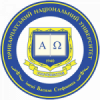Cognitive-Style Approach to Psychological Support of the Gifted Pupils Mountain Schools of the Ukrainian Carpathians
DOI:
https://doi.org/10.15330/jpnu.1.2-3.181-187Keywords:
giftedness, creative intellectual activity, differential-cognitological point of viewAbstract
The differential-cognitological point of view, giftedness is “a systemic quality of a
personality that develops throughout life and determines their abilities to achieve exceptionally
high results in one or more activities compared to those of other people”. Herewith, it is the
fundamental concept of general aptitude, under which “the level of general abilities development
that determines the range of activities in which a person can achieve great success” is understood.
Within the structure of general aptitude intellectual giftedness is singled out as the level of
development, as well as the type of organization of individual mental experience, which ensure an
opportunity of creative intellectual activity, i. e. an activity, related to the creation of subjectively
and objectively new ideas, to the use of innovative approaches to solving problems and openness
to controversial aspects of the situation and so on. In order to identify talented children and adults
the value of intellectual quotient (IQ) is still most commonly used. Psychometric approach (the
measurement of psychic phenomena with the help of standardized IQ tests) to the diagnosis of
intellectual giftedness, which is dominant in psychological diagnostics today, by definition, cannot
“measure” the phenomena of an individual psyche, since the modern level of psychological science
does not allow to proceed to psychological diagnosis, let alone prediction of a certain person`s
behavior, on the basis of individual results in performing a psychological test (psychometric test of
intelligence, personality questionnaire, projective methods etc).
In our opinion, many problems in psychological and pedagogical support of gifted children
could be avoided by making use of cognitive-style approach to diagnosis of intellectual giftedness,
creative abilities, propensities and peculiar mental traits of a separate individuality. Objectivity of
such an approach is corroborated by the results of individual cognitive styles (hereinafter CS)
diagnostics, carried out by means of experimental techniques. In contrast to standardized tests,
such techniques allow to perform diagnostic tests individually and reveal the peculiarities of the
arrangement and functioning of an individual mind.
Obviously, nowadays we are faced with the need for providing theoretical, methodological and
empirical grounds for the development of a conceptual model that would consider giftedness as an
integral psychological system, all aspects of which could be understood in the context of age
dynamics and mental experience of an individual. CS approach to interpreting and diagnosis of
giftedness provides a reliable theoretical basis for working out a systematic methodology of
psychological diagnostics of the general aptitude, as it meets the basic principles of humanization
of the educational environment in Ukraine. CS approach is child-centered, therefore, it brings in
focus individual uniqueness and originality of each child.







